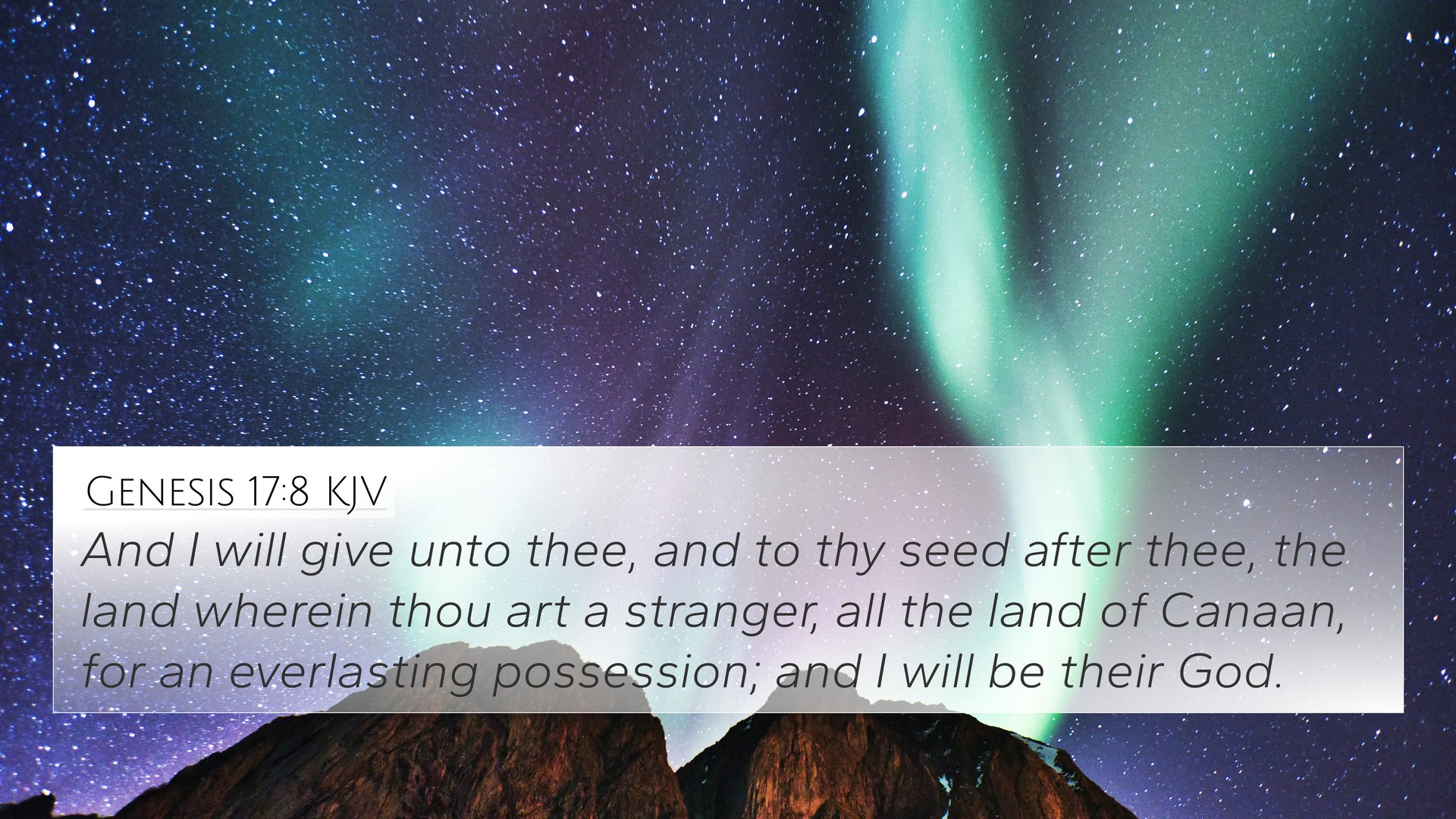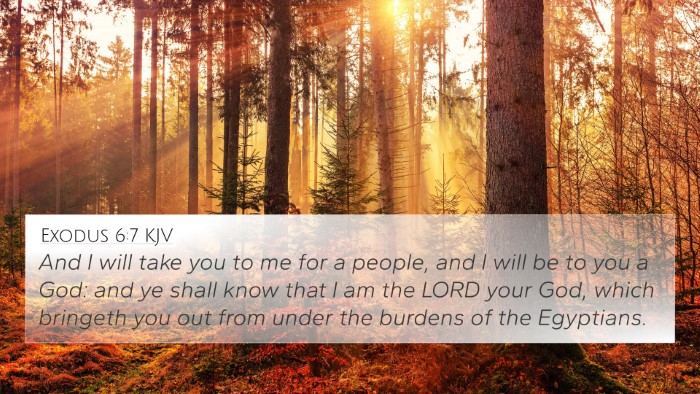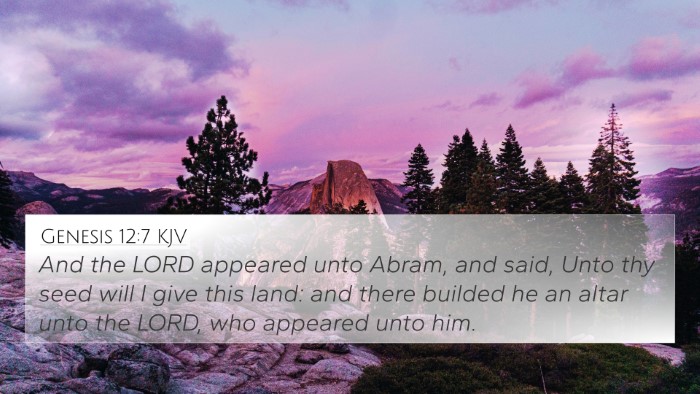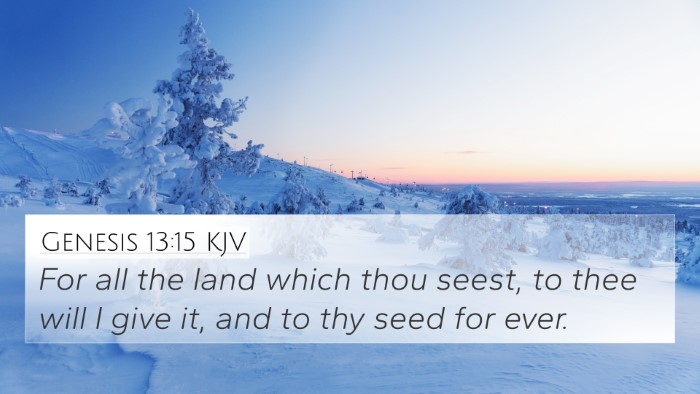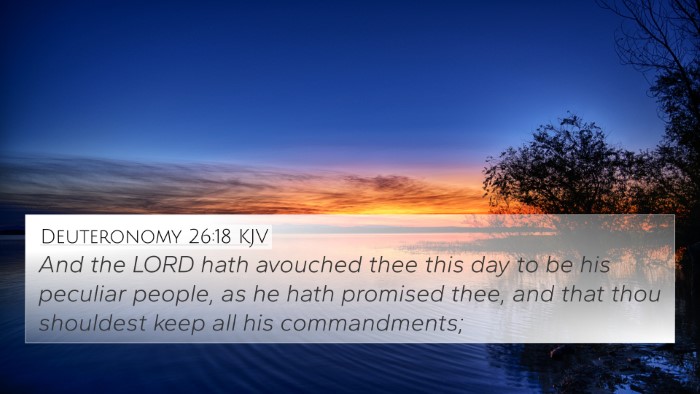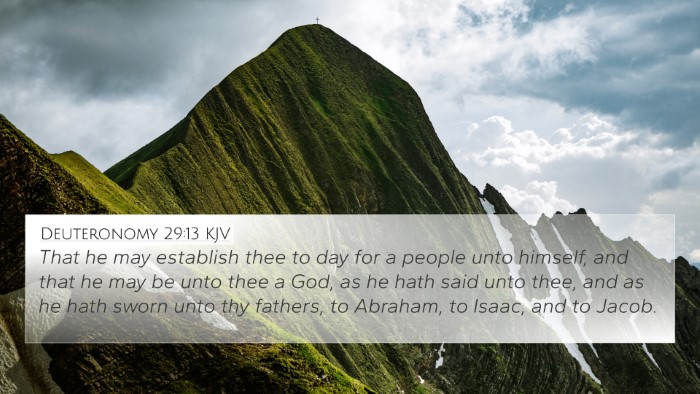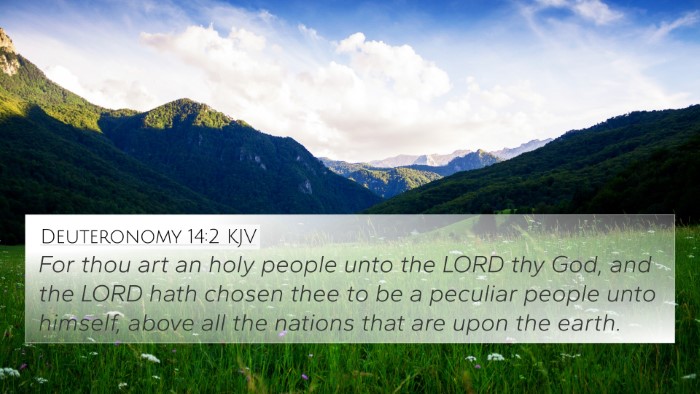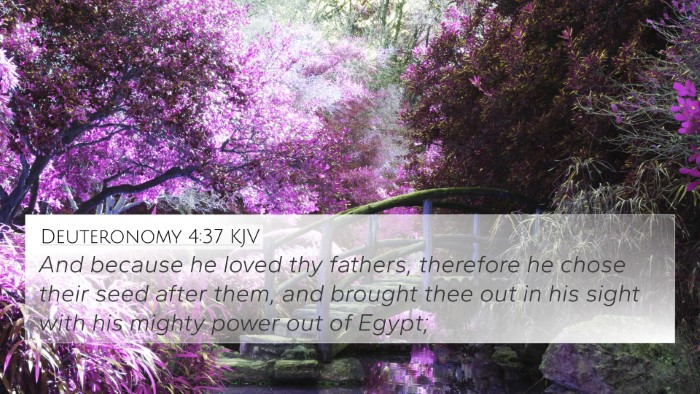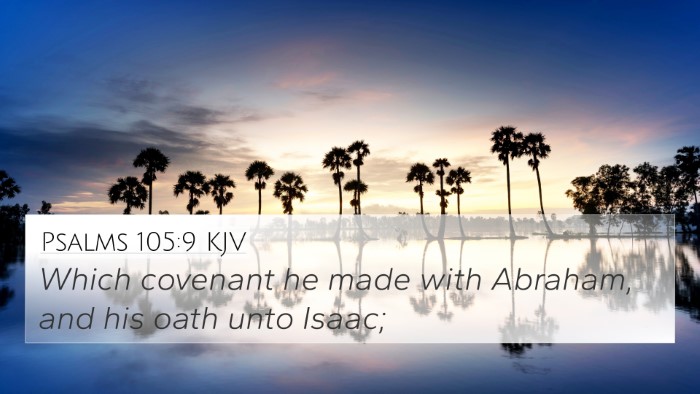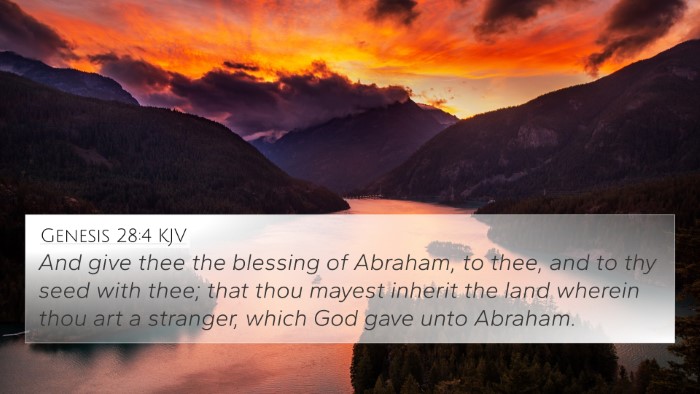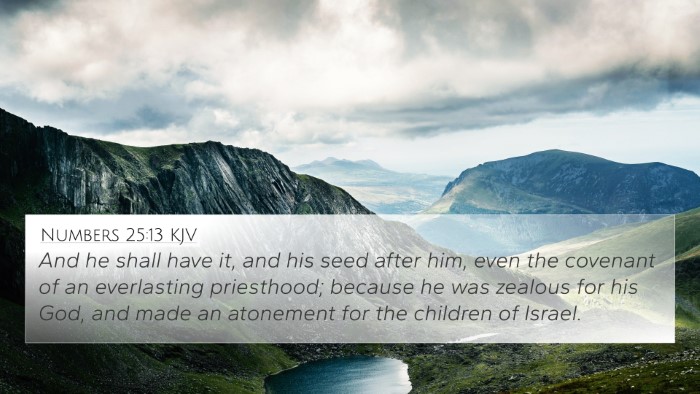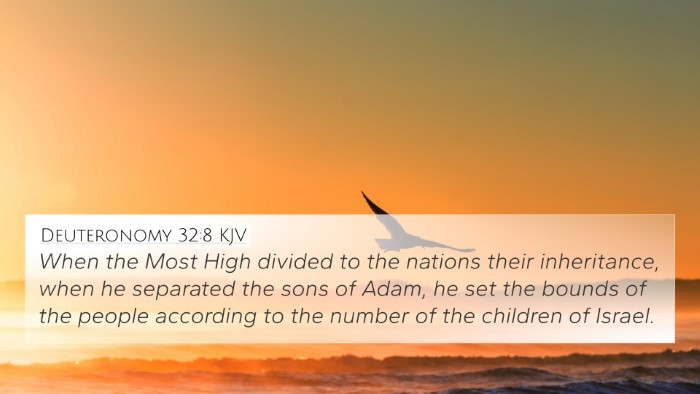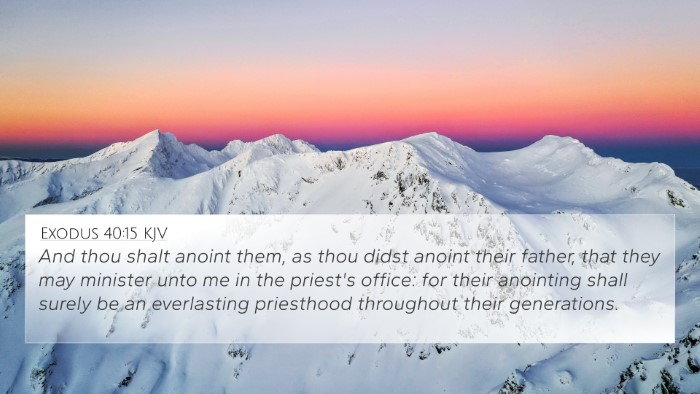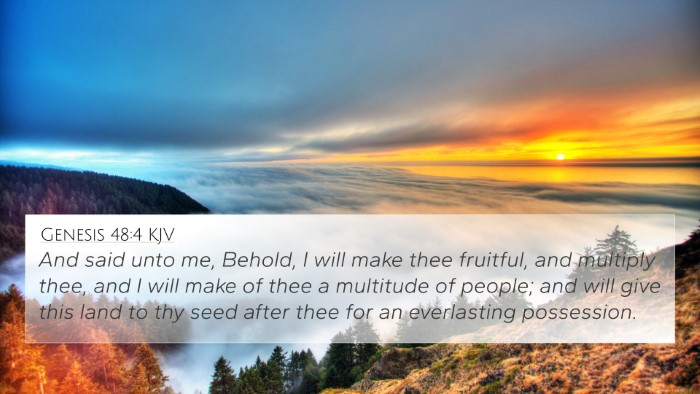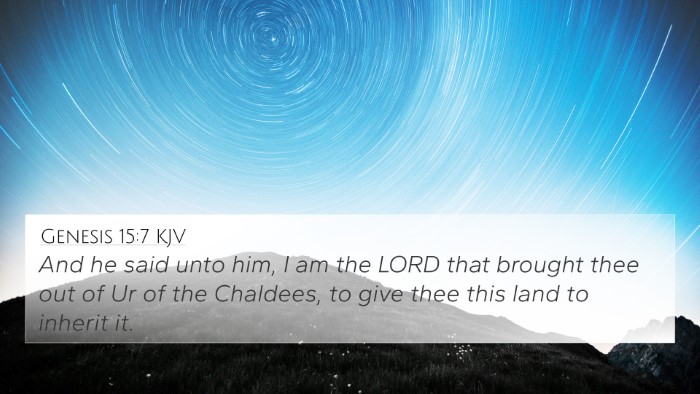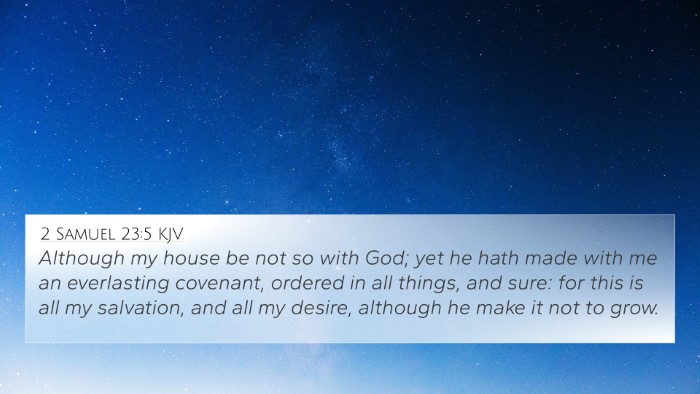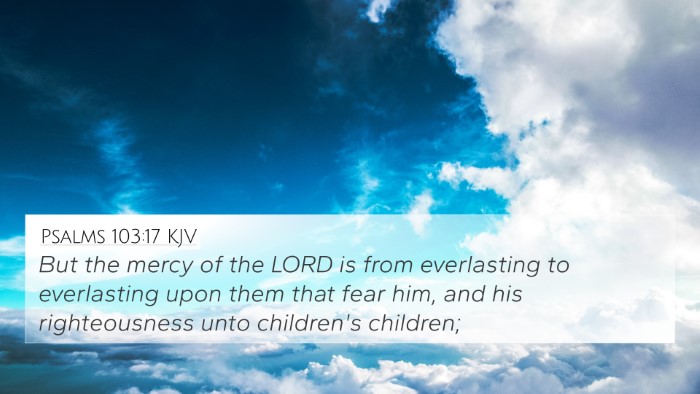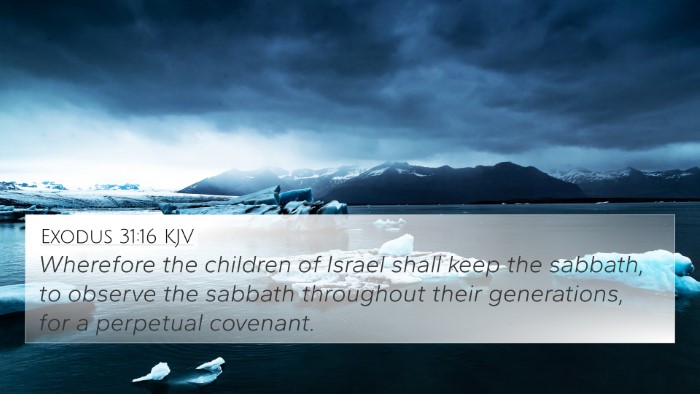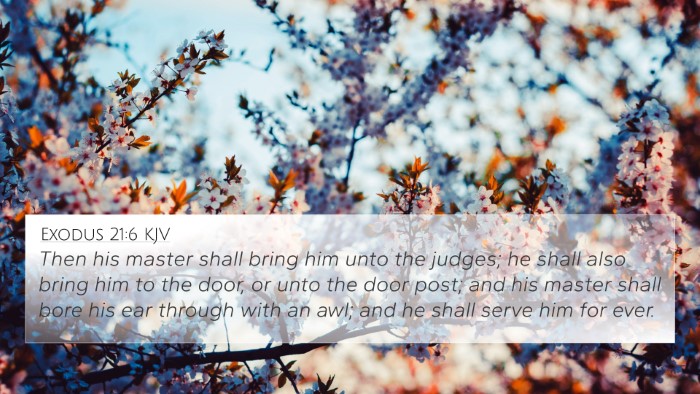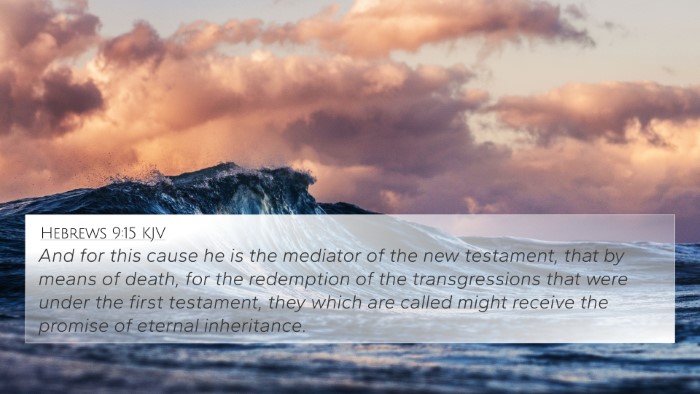Understanding Genesis 17:8
Genesis 17:8 states:
"And I will give unto thee, and to thy seed after thee, the land wherein thou art a stranger, all the land of Canaan, for an everlasting possession; and I will be their God."
This verse is pivotal in the narrative of God's covenant with Abraham, marking a significant moment in Biblical history. Below, we explore its meaning through insights drawn from various public domain commentaries.
Analysis of Genesis 17:8
This passage is rich with meaning, and its implications can be understood through a combination of theological and historical perspectives. Each commentary provides insights that contribute to a deeper understanding of this verse.
Key Themes
- Covenant and Promise: God’s covenant with Abraham is critical, as it establishes the foundation for Israel’s relationship with God.
- Land as Inheritance: The assurance of the land of Canaan as an everlasting possession signifies the permanence of God’s promises.
- Divine Presence: God’s statement, "I will be their God," emphasizes a relational aspect of the covenant, highlighting God's commitment to be with His people.
Commentary Insights
By exploring insights from Matthew Henry, Albert Barnes, and Adam Clarke, we gain a multifaceted understanding of this verse:
Matthew Henry's Commentary
Matthew Henry emphasizes the unconditional nature of God’s promises to Abraham. He notes that God's dealings with Abraham demonstrate both grace and faithfulness. The land is not just a physical possession but a symbol of God’s presence among His people.
Albert Barnes' Notes
Barnes remarks that this promise was a significant part of the covenant that established the Israelite identity. He points out that the term "everlasting" signifies the continuity of God’s promises throughout generations, bridging the covenant from Abraham to his descendants. Barnes also associates this land promise with God's future blessings and compartments of spiritual inheritance.
Adam Clarke's Commentary
Clarke notes the geographical and spiritual implications of the land of Canaan. He explains that the term "stranger" reflects Abraham's temporary status in the land, foreshadowing the eventual possession by his descendants. Clarke’s commentary also highlights the enduring nature of God’s covenant, which extends beyond physical land to include spiritual implications for future generations.
Bible Verse Cross-References
Genesis 17:8 holds connections with other Biblical texts that enrich its interpretation. Here are 10 cross-references to consider:
- Genesis 12:1-3: The initial call and promise to Abraham, establishing the covenant theme.
- Exodus 3:8: God's promise to deliver the Israelites into a land flowing with milk and honey.
- Deuteronomy 7:13: God's commitment to bless the descendants of Abraham with the promised land.
- Psalm 105:8-11: Recall of God’s covenant promises to Abraham regarding the land.
- Romans 4:13: Spiritual interpretation of the promise given to Abraham and his heirs.
- Hebrews 11:9-10: Abraham’s faith in the promise of a heavenly city, connecting the physical land to spiritual inheritance.
- Galatians 3:16: The connection of the promise to Abraham directly to Christ, emphasizing the new covenant.
- Acts 7:5: Stephen’s recounting of the promise made to Abraham concerning the land.
- Jeremiah 31:33: The new covenant that God will establish, paralleling the eternal aspect of the original covenant.
- Revelation 21:3: The ultimate fulfillment of God’s dwelling among His people, illustrating the eternal nature of His promises.
Thematic Connections
The themes present in Genesis 17:8 provide a connective tissue that weaves through the entirety of scripture. These include:
- Covenantal Theology: The idea of God making promises and covenants with His people is central to both the Old and New Testaments.
- Faith and Obedience: The narrative of Abraham is a model of faith that is further explored in various scriptures, including those in the New Testament.
- Divine Provision: God’s promises to His people often include a provision of land, peace, and presence which can be traced throughout various Biblical stories.
Cross-Referencing Biblical Texts
When studying Genesis 17:8, employing cross-referencing tools for Bible study provides a methodology for understanding scriptural connections. By doing so, one can:
- Identify connections between Old and New Testament scriptures.
- Engage in comparative Bible verse analysis that enhances understanding of individual passages.
- Explore themes and patterns that emerge through linking Bible verses, thereby enriching one’s overall comprehension.
Conclusion
Genesis 17:8 encapsulates vital theological concepts central to both the narrative of Abraham and the overarching story of God's people. Through careful analysis of this verse in conjunction with insights from respected commentators and interdisciplinary scriptural connections, readers can grasp the depth of God's promises and their implications for faith, identity, and divine relationship.
